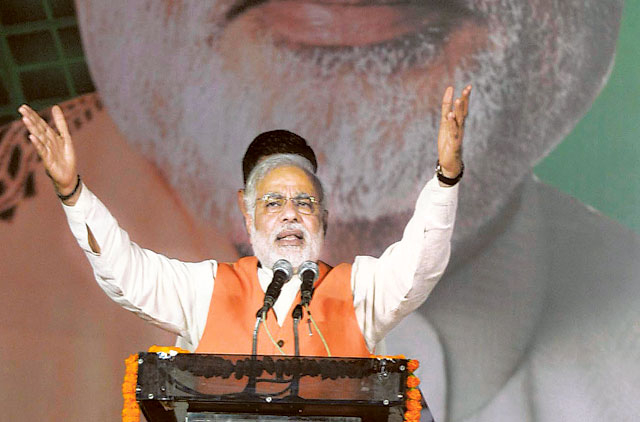With the Narendra Modi-led National Democratic Alliance (NDA) government taking charge, things are looking up for the real estate sector in India. With the new government promising to promote affordable housing, property will once again become the most popular investment option thanks to significant appreciation in real estate prices on the heels of higher demand.
Revitalised flow of funds
Issues such as affordability and delays in construction due to litigation as well as a host of other reasons have affected both developers and consumers.
Now, India Inc. has welcomed the new government in the firm hope that it will bring the economy back on track and raise the currently plummeting gross domestic product (GDP) to 8-9 per cent in the coming fiscal. The new government at the centre is expected to infuse life into the existing policy paralysis in the country by removing major bottlenecks.
Foreign direct investment (FDI)in the Indian real estate sector is expected to get a lift, resulting in amplification of fund flows and strengthening of the battered Indian rupee. With a clear majority, the incumbent government will enjoy stability at the centre, which will encourage investor sentiment. Global investors are now markedly optimistic about the Indian economy, which is expected to witness more than 100 per cent increase in foreign investment inflows, both via FDIs and foreign institutional investors (FII), to above $60 billion (Dh220 million) in the current financial year, as compared to $29 billion during 2013-14.
The urban development ministry is expected to repeal the existing restrictions on real estate firms by allowing foreign investment up to 49 per cent, free of all conditions. This will help the real estate sector to raise foreign capital at competitive rates and reduce stakeholder dependency on the beleaguered local financial institutions. Foreign capital for urban renewal and slum redevelopment projects is also expected to see major relaxations.
The retail sector is also expecting enhanced domestic as well as foreign investments. India’s large but capital-constrained retailers have welcomed the liberalised rules that are expected to bring funding and new technologies into the sector. As a result, demand for retail space is going to increase enormously.
Fast-tracked infrastructure
The completion of large infrastructure projects such as the Delhi Mumbai Industrial Corridor and the Dedicated Freight Corridor will be expedited. This, in turn, would mean development of many new cities across the belt of these projects. These massive on-going infrastructure projects will lead to a huge demand for warehouses, giving a boost to warehousing and logistics-related real estate demand.
Need of the hour
In terms of real estate, some of the urgent steps the NDA government needs to take are:
■ Reversal of the land acquisition act.
■ Clearance of pending receivables to the private sector via fast-tracked bureaucratic decision-making.
■ Provision of fiscal stimuli to improve industrial growth.
■ Creation of investment-friendly real estate market via lowered interest rates.
Wishlist
India’s developers hope that:
■ The new government will expedite the process of granting regulatory approvals.
■ The Real Estate Development Regulation and Development bill will be passed.
■ The new government will ease land acquisition parameters so that availability of land is no longer a major constraint.
With the slowdown in home sales, developers have been battling a severe liquidity crunch and a rise in their inventory levels. Many prospective buyers have abstained from investing in property because of market negativity, an unstable government at the centre, high inflation and high interest rates on home loans.
Now, with the stock market rocketing and the Indian rupee appreciating, these buyers are expected to snap into action. Increased sales, along with availability of funds from both domestic and foreign investors, will bring significant respite to developers and finally bring an end to the liquidity crunch that they have been facing.
Promises and hopes
The three major promises made by the NDA in their manifesto that have direct pertinence to the real estate sector are:
■ The development of 100
new cities.
■ Putting a new land use policy in place.
■ Planning for low-cost
housing.
Modi’s pledge to implement an affordable housing policy and thereby provide homes to every Indian family presents a $150 billion business opportunity to the sector. The real estate industry now also has real hopes of being granted the coveted industry status, which will further ease fund flows.
— The writer is CEO, Operations, JLL India













